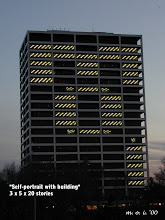"People get ready, there's a train 'a comin'." Curtis Mayfield.
When asked early in his career by a sneering journalist, "what makes you guys so different?" Joe Strummer, lead singer of The Clash, shot back, "well, for one thing, we never brush our teeth." This was Alfred Jarry asking for a toothbrush on his death bed and it sent the message to Fleet Street that The Clash didn't give a fuck whether you liked them or not. They did care if you listened though and they worked hard to get people to listen. Helped by art school backgrounds, Strummer and bandmates Mick Jones and Joe Simonon, understood that fame was part talent, part marketing, and part attitude. And the more famous you were, the more people listened. And listen they did.  It was hard to ignore The Clash in the early 80s if you were following punk, interested in politics, or just slightly at odds with the foibles, failures, and lies of the Reagan and Thatcher administrations. "The only band that matters," Epic Records Director of A&R, Bruce Harris, once said about the Clash. It was a statement oft repeated in the heyday of punk, post-punk, and the years since. Of all the people who have agreed with that statement, and there have been many, the one who most certainly would have not agreed with it, was Strummer. The Clash mattered because they made you realize how much the music and politics of Woody Guthrie, Joan Baez, and the Wailers mattered.
It was hard to ignore The Clash in the early 80s if you were following punk, interested in politics, or just slightly at odds with the foibles, failures, and lies of the Reagan and Thatcher administrations. "The only band that matters," Epic Records Director of A&R, Bruce Harris, once said about the Clash. It was a statement oft repeated in the heyday of punk, post-punk, and the years since. Of all the people who have agreed with that statement, and there have been many, the one who most certainly would have not agreed with it, was Strummer. The Clash mattered because they made you realize how much the music and politics of Woody Guthrie, Joan Baez, and the Wailers mattered. In the new documentary, The Future is Unwritten: Joe Strummer, director Julien Temple tells the story of the singer, his early days as the the leader of the 101's, the house band for West London squatters, and how Strummer came to The Clash and led them to the summit of the U.K. and U.S. punk scenes before fame, drugs, and jealousy dismantled them, sending two-thirds of its members into rehab and exiled Strummer into the wilderness of his own soul. It was nearly 10 years before Strummer came out of the woods to back another band, the Mescaleroes.
In the new documentary, The Future is Unwritten: Joe Strummer, director Julien Temple tells the story of the singer, his early days as the the leader of the 101's, the house band for West London squatters, and how Strummer came to The Clash and led them to the summit of the U.K. and U.S. punk scenes before fame, drugs, and jealousy dismantled them, sending two-thirds of its members into rehab and exiled Strummer into the wilderness of his own soul. It was nearly 10 years before Strummer came out of the woods to back another band, the Mescaleroes.
The film is full of early footage of The Clash, even before they hit it big, much of it culled from Temple's early work following the Sex Pistols. The Clash's first gig was as an opening act for the Sex Pistols. One early scene in the film has Strummer alone in the studio laying down the vocals to White Riot, screaming at the top of his lungs "Everybody does, just what they're told to; nobody wants to go to jail", immersed in the mantra, and oblivious to the world. Stummer's varied musical tastes and love of the genre are woven into the film via archival BBC recordings of song introductions done on London Calling, a radio show that Strummer hosted.
Temple juxtaposes quick edits of old grainy black and white footage with new color images of testimonials shot around campfires and candid interviews with other Clash members, Mick Jones, Paul Simonon, and Topper Headon. During his wilderness period, Strummer discovered how a bonfire could set people at ease and bring out the stories and music in people. Temple reprises the technique here to some effect, although it's two-thirds through the movie before we discover why the campfire scenes. Joe Ely and rapper Melle Mel of the Grandmaster Five, with whom The Clash first toured in the US, share some good stories about how The Clash conquered the US. Melle Mel, also points out that, despite being a visionary, Strummer was a bit of a personal coward, afraid of confrontation. John Cusak sounds like an adoring fan when he describes the bands impact on him, but campfire scenes with Johnny Depp (talking like a pirate!) and Bono seem forced and contrived. When Martin Scorcese says, that although there is no The Clash music in the soundtrack to Raging Bull, it was his inspiration for the film, well, frankly, it's hard to believe.
If you followed The Clash and the punk scene, or even if you just care about music, democracy, and how it's made and why, then this is one film you won't want to miss.
Sunday, December 9, 2007
the only documentary that matters
Posted by
Warrior Ant Press Worldwide Anthill Headquarters in Kansas City, Missouri, USA.
at
5:34 PM

Subscribe to:
Post Comments (Atom)





No comments:
Post a Comment